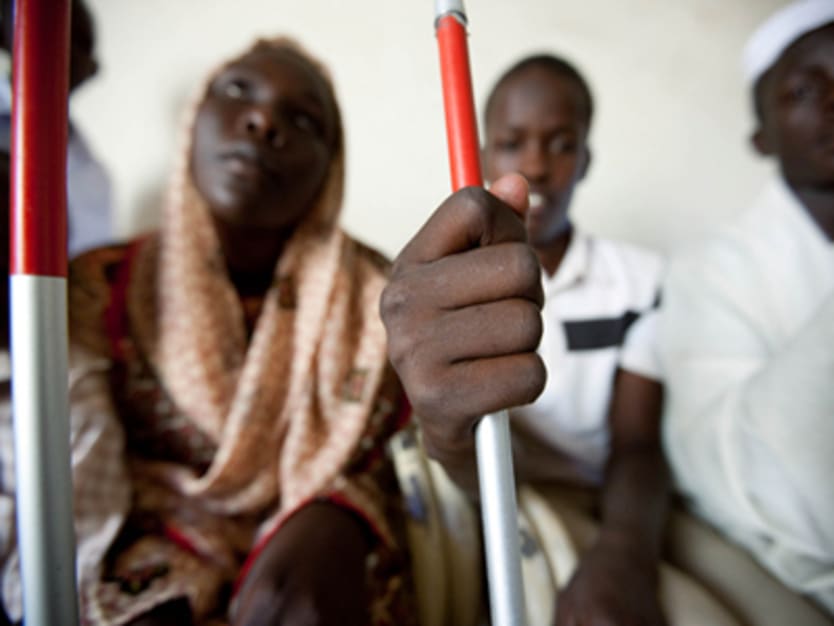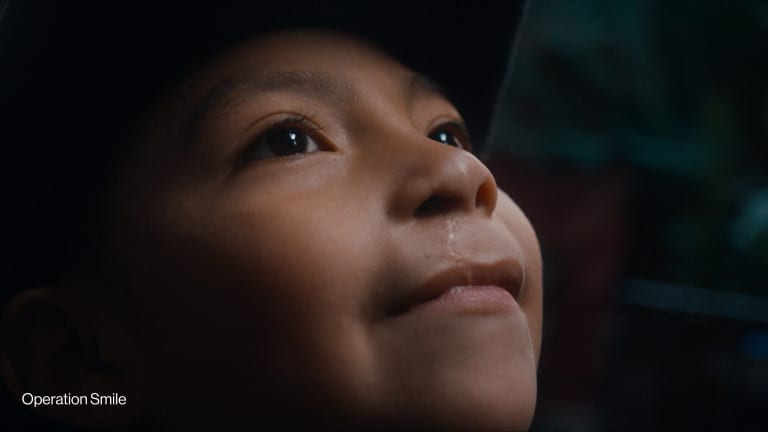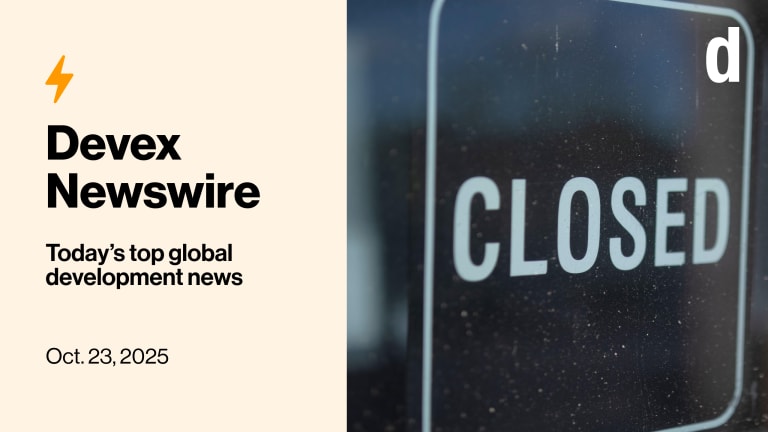
Over 80 percent of people with disabilities all over the world live in developing countries — but they are rarely included as a priority in development efforts.
People with disabilities have the same needs and rights to health, education and employment as everyone else, yet they are one of the most excluded and vulnerable of all groups in society, particularly in the poorest countries in the world. As a result, many are being left behind, according to Sightsavers, a London-based NGO that combats blindness in developing countries.
That’s why the organization is launching on Tuesday Put us in the Picture, an 18-month campaign to persuade the British government to change its foreign aid policy on people with disabilities. The campaign is asking the U.K. Department for International Development to develop a strategy to ensure people with disabilities are put in the picture of its efforts to tackle global poverty.
We asked Juliet Milgate, Sightsavers’ head of policy, to share with us a few insights on the campaign on the International Day of Persons with Disabilities:
Specifically, what can donors and aid agencies do to include people with disabilities in the development agenda?
It’s really important that aid agencies consider the most marginalized in their programs — in many cases the most marginalized are those who have a disability as they are left out of society. They cannot access the education systems currently in place, they cannot benefit from existing health systems, and as a result they are often not able to secure a decent form of employment.
With that in mind, donors and aid agencies must have a clear strategic plan for people with disabilities and make sure that their programs are equally accessible to all people in the communities in which they work. For example, a child with visual impairment needs special provision if he or she is to attend the local school and learn alongside peers — and it is important that teachers are supported and able to teach those with visual impairment, and that they have appropriate materials so the child can participate in class. It sounds simple, but although the U.K. aims to “work to end extreme poverty” and targets areas such as education, health and economic growth, DfID does not as yet have a coherent, measurable strategy for the inclusion of people with disabilities.
How receptive do you think DfID will be to your request? How do you plan to help them develop the strategy? What kind of technical assistance can you provide?
We know that DfID is increasingly concerned about the exclusion of people with disabilities and so we are optimistic that we can influence policy change. In September, Lynne Featherstone spoke about the “great neglect of disability” and also about a “watershed moment for disability.” The minister is clearly committed to the rights of people with disabilities and our role through Put Us in the Picture is to work collaboratively with her to achieve this across DfID.
We want DfID to make sure people with disabilities participate in, and benefit from, all international development programs. We want them to talk, listen to and work with people with disabilities and their families. We want them to be realistic about the costs of including people with disabilities, and adequately finance accessibility costs in all programs. Lastly, we want DfID staff to be trained so that they have the right skills to include people with disabilities in their work and support disabled people’s organizations to hold DfID to account.
We’ve been working with people who are blind and partially sighted for over 60 years, and so are well placed to advise on technical assistance, but at this stage we are looking for the British government and political parties to include people with disabilities in the U.K.’s international development policy.
If DfID agrees to change its policy, what type of aid workers would they be recruiting to carry out the programs? How will you train them?
DfID already has existing aid experts that design, manage and implement aid programs, that are engaged in communications and funding, or who work in policy development. Those experts will remain unchanged. But Put Us in the Picture is asking that those experts now have the skills they need to include disability rights in their work. The best source for those skills are disabled people’s organisations themselves — they have the knowledge and experience that DfID needs. We are asking DfID to work closely with disabled people’s organizations in the countries in which DfID works, so that there is real inclusion of people’s needs and rights from the start.
Have you discussed any potential funding target?
The Put us in the Picture campaign has no funding target. The reason for this is that we want to work with DfID collaboratively to better understand the costs of inclusion. That is why we are recommending that DfID develop a coherent strategy or plan — and that it focuses first on one or two sectors (like education or health) across three or four DfID priority countries. This is about getting it right for the long-term for people with disabilities in health, education and employment.
Read more development aid news online, and subscribe to The Development Newswire to receive top international development headlines from the world’s leading donors, news sources and opinion leaders — emailed to you FREE every business day.








